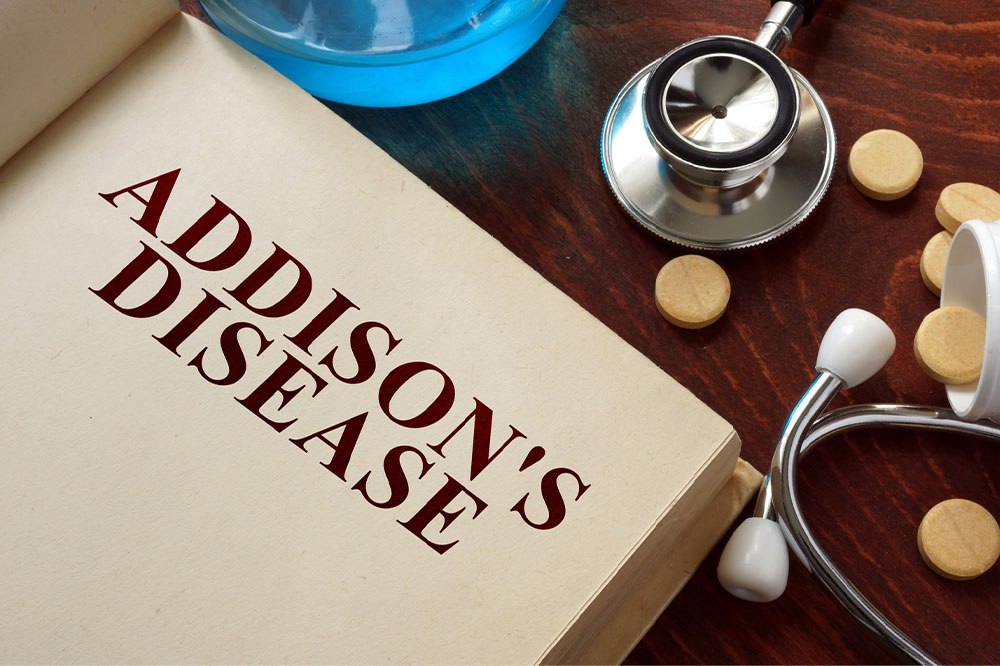
A comprehensive guide to Addison disease
Addison disease is a rare but significant health condition that affects the adrenal glands. Diagnosing can be challenging, as the symptoms can vary significantly between individuals. However, with proper management and understanding of the condition, those affected by Addison’s disease can lead a relatively normal life. Let’s explore and provide a comprehensive guide to understanding and managing Addison’s disease. Let’s have a look at it.
What is Addison’s disease?
Addison’s disease, also recognized as primary adrenal insufficiency, is a rare disorder that occurs when the adrenal glands cannot produce enough of certain hormones, primarily cortisol and aldosterone.
A deficiency of these hormones can lead to several chronic health problems, including fatigue, abdominal pain, low blood pressure, and salt cravings. If left untreated, the disease can cause severe health problems.
However, people with Addison’s disease can lead relatively normal lives with proper treatment and management.
What are the symptoms of Addison’s disease?
It is important to be aware of the symptoms of Addison’s disease to seek treatment early and manage the condition effectively. The disease includes the following symptoms:
- Low blood pressure
- Unintentional low BMI
- Muscle weakness
- Abdominal pain
- Low blood sugar
- Darkening of the skin
- Loss of appetite
In addition, people with Addison’s disease may experience depression, salt cravings, and an overall feeling of ill health. If you are encountering any of these symptoms, you must talk to your doctor to get a proper diagnosis.
Causes of Addison’s disease
Addison’s disease is caused by an autoimmune disorder in which the body’s immune system attacks its tissues. In some cases, Addison’s disease may be caused by a genetic defect.
The most common cause of Addison’s disease is the immune system’s destruction of the adrenal glands. This process is known as primary adrenal insufficiency. When this happens, the body can no longer produce enough cortisol and sometimes aldosterone, necessary to regulate vital functions such as blood pressure and salt balance.
Another cause of Addison’s disease is the destruction of the pituitary gland, the part of the brain that produces hormones. This is known as secondary adrenal insufficiency and can result from a tumor, surgery, or radiation treatment in the pituitary area.
Other causes of Addison’s disease include infections such as tuberculosis, HIV, and certain fungal infections; cancer in the adrenal gland; and various rare diseases and conditions.
How is Addison’s disease diagnosed?
Addison’s disease can be challenging to diagnose because the symptoms can be vague and similar to those of other conditions. A doctor may run a series of tests to diagnose the condition. These tests may include:
- Blood tests
This test measures the levels of hormones in your body, such as cortisol and aldosterone. - Adrenocorticotropic hormone (ACTH) stimulation
This test measures how your adrenal glands respond to ACTH, a hormone released by the pituitary gland. - Imaging tests
An ultrasound or CT scan of the abdomen can be used to rule out other possible causes of the symptoms. - Urinalysis
This can measure the number of electrolytes and minerals in the urine. - Genetic testing
This test can help determine if there is a genetic cause for Addison’s disease.
What are the treatment options for Addison’s disease?
Treatment for the disease is focused on replacing the hormones your body lacks due to adrenal insufficiency. This can be accomplished through supplements, lifestyle changes, and monitoring of your condition.
- Supplements
The supplements are often prescribed as replacement therapy to address any hormone deficiencies caused by Addison’s disease. Depending on your needs, your healthcare provider may recommend taking oral or intravenous supplements. Taking these supplements exactly as prescribed is essential to maintain optimal hormone levels. - Lifestyle changes
Making lifestyle changes can help improve your symptoms and quality of life. These changes include exercising regularly, eating a balanced meal, managing stress, and getting enough rest. - Monitoring
Regular health monitoring is essential if you have Addison’s disease. This includes regular visits to your doctor for checkups and blood tests to measure cortisol and aldosterone levels in your body. Additionally, you should always carry healthcare alert cards so licensed professionals are aware of your condition in case of an emergency.
By combining supplements, lifestyle changes, and monitoring, people with Addison’s disease can find relief from their symptoms to lead a healthy and active life.




